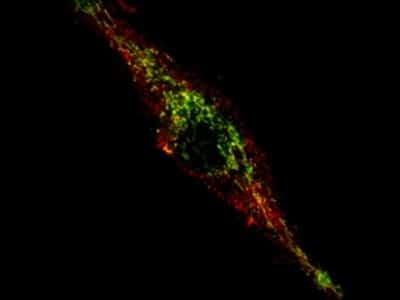
 Researchers at the University of Montreal and McGill University have discovered two genes associated with Parkinson’s disease which are also implicated in autoimmune disorder, providing key evidence that Parkinson’s might actually be an autoimmune disease and charting a new path for Parkinson’s research.
Researchers at the University of Montreal and McGill University have discovered two genes associated with Parkinson’s disease which are also implicated in autoimmune disorder, providing key evidence that Parkinson’s might actually be an autoimmune disease and charting a new path for Parkinson’s research.
Parkinson’s involves the neurodegeneration or break down and death of nerve cells in the brain, bringing about a disruption in the production of dopamine which is necessary for the control of motor functions. The cause of neuron death in patients with Parkinson’s is not fully understood, but a commonly advanced theory has been that the mitochondria in nerve cells are to blame in that somehow they become damaged and their decomposition eventually leads to cell death. Yet conclusive proof for this hypothesis has yet to be established, leaving experts still searching for the root cause of the disease which affects more than 100,000 Canadians and is expected to become more pervasive as Canada’s population ages.
The Montreal researchers found that two genes known as PINK1 and Parkin, which are both associated with the presentation of Parkinson’s, are also important in cell defense processes. Normally, when a body’s cells are being attacked by an intruder – say, when a person has an infection such as the common cold – its cells will display bits of proteins on their surfaces called antigens, essentially flagging that cell as infected and allowing the immune system to kick in and prevent further infection by destroying the damaged cell. But the research team determined that PINK1 and Parkin are both implicated in the production of antigens, in that when these two genes are dysfunctional, a cell will display the antigens and alert the body’s T cells to start attacking that cell, as is the case with autoimmune diseases such as type1 diabetes, multiple sclerosis and rheumatoid arthritis, where the body’s immune system begins to attack otherwise healthy cells.
“Clinicians have shown that the immune system is activated in the brain of Parkinson’s disease patients,” says Dr. Diana Matheoud, postdoctoral fellow at the University of Montreal and the article’s first author. “Our study explains how an attack by the immune system may be responsible for the destruction of dopaminergic neurons during the disease.”
The research marks a new path for both Parkinson’s research and autoimmune research in general – for decades, neurobiologists believed that antigens could not be displayed on the brain’s nerve cells, called neurons, but recent evidence has begun to point otherwise. A 2014 study from Columbia University and the La Jolla Institute for Allergy & Immunology found that a particular type of antigen protein called MHC-1 can be present in the neurons of both mouse and human brain tissue and they confirmed that when the body’s T cells – which can enter the brain – recognized the MHC-1 antigens, they attacked those particular neurons.
“Antigen presentation was not believed to play a direct role in Parkinson’s disease,” says Dr. Heidi McBride of the Montreal Neurological Institute and study co-author. “While most laboratories are following the trail of the ‘toxic mitochondria’ model, our path led us to observe Parkinson’s disease from a different point of view.”
Leave a Reply
You must be logged in to post a comment.


 Share
Share Tweet
Tweet Share
Share




Comment